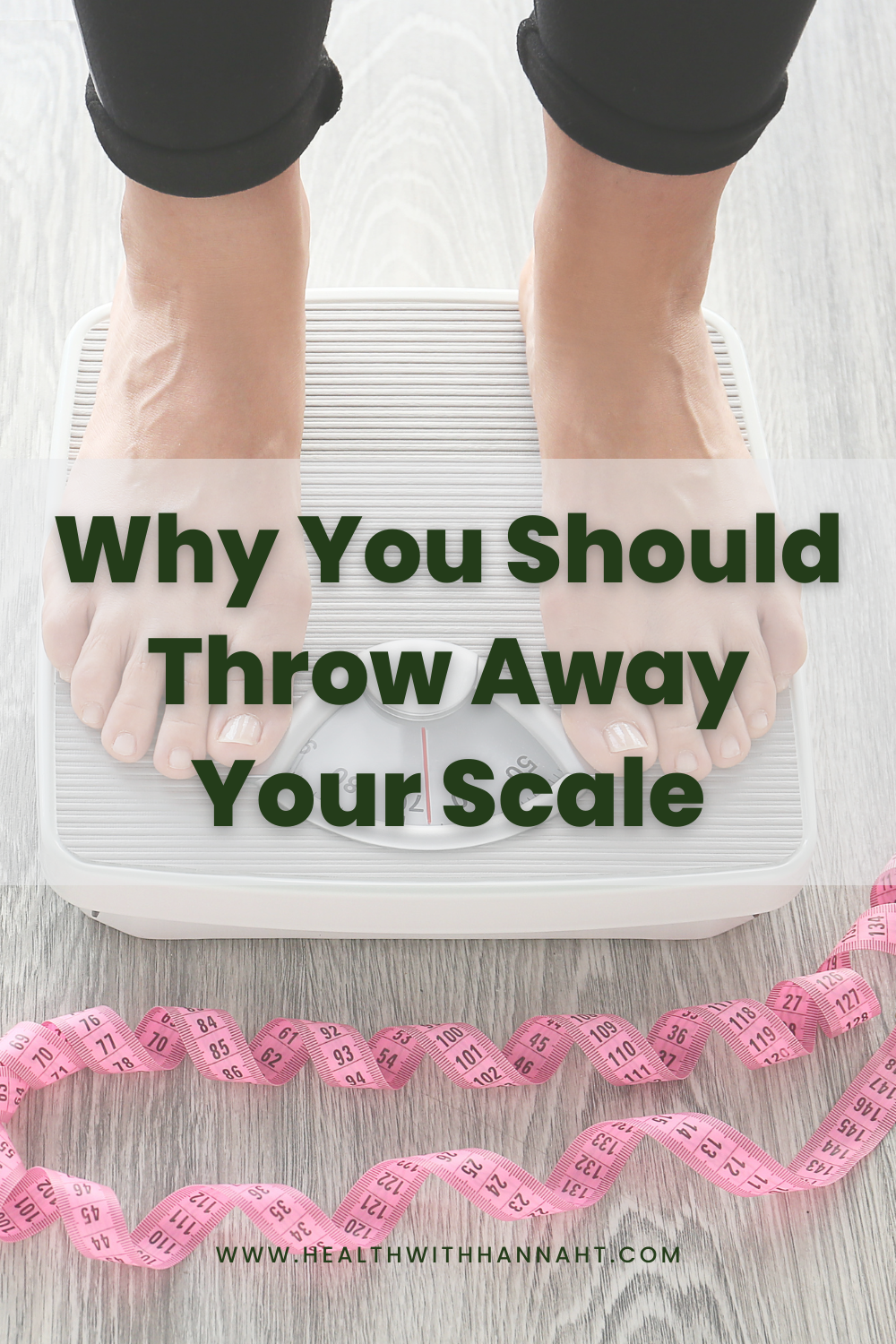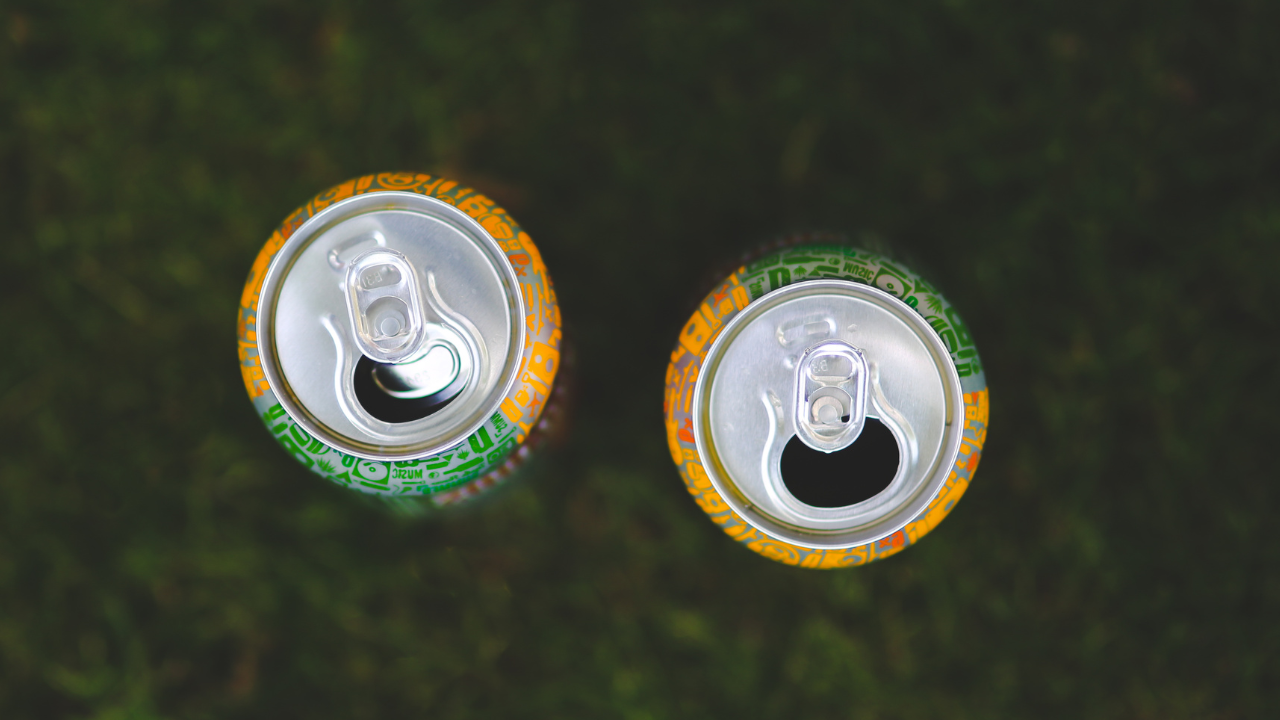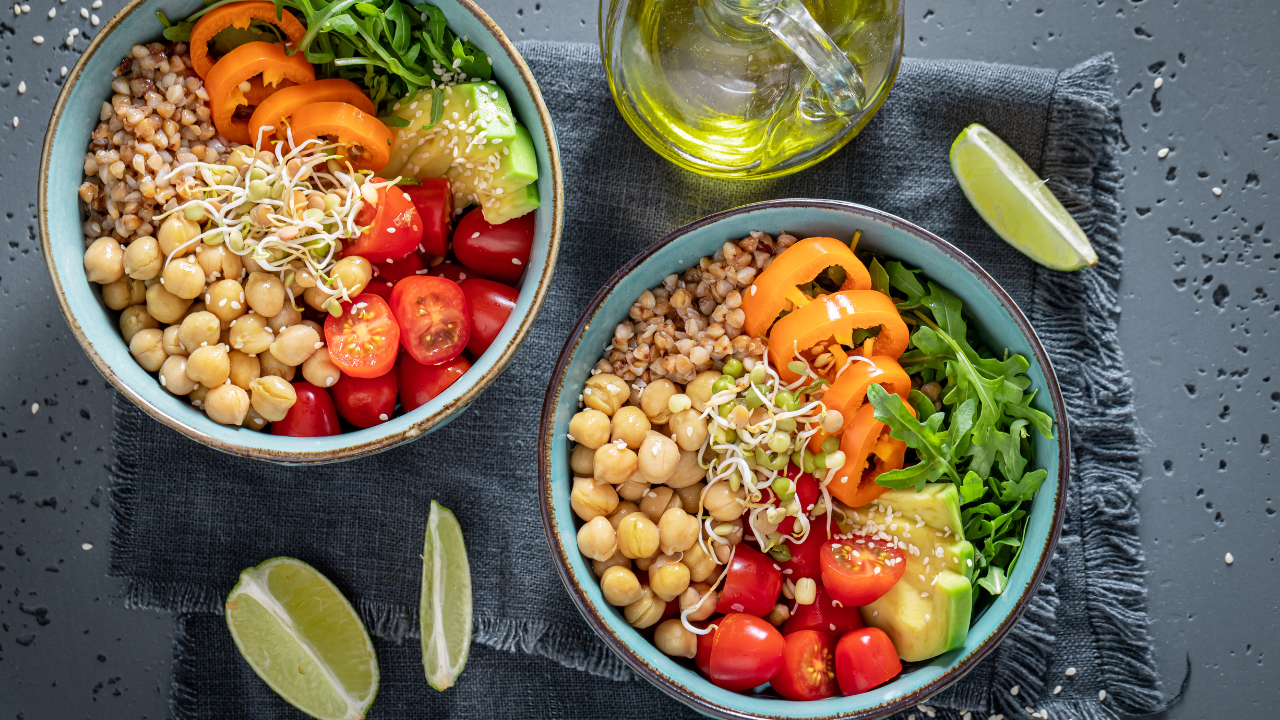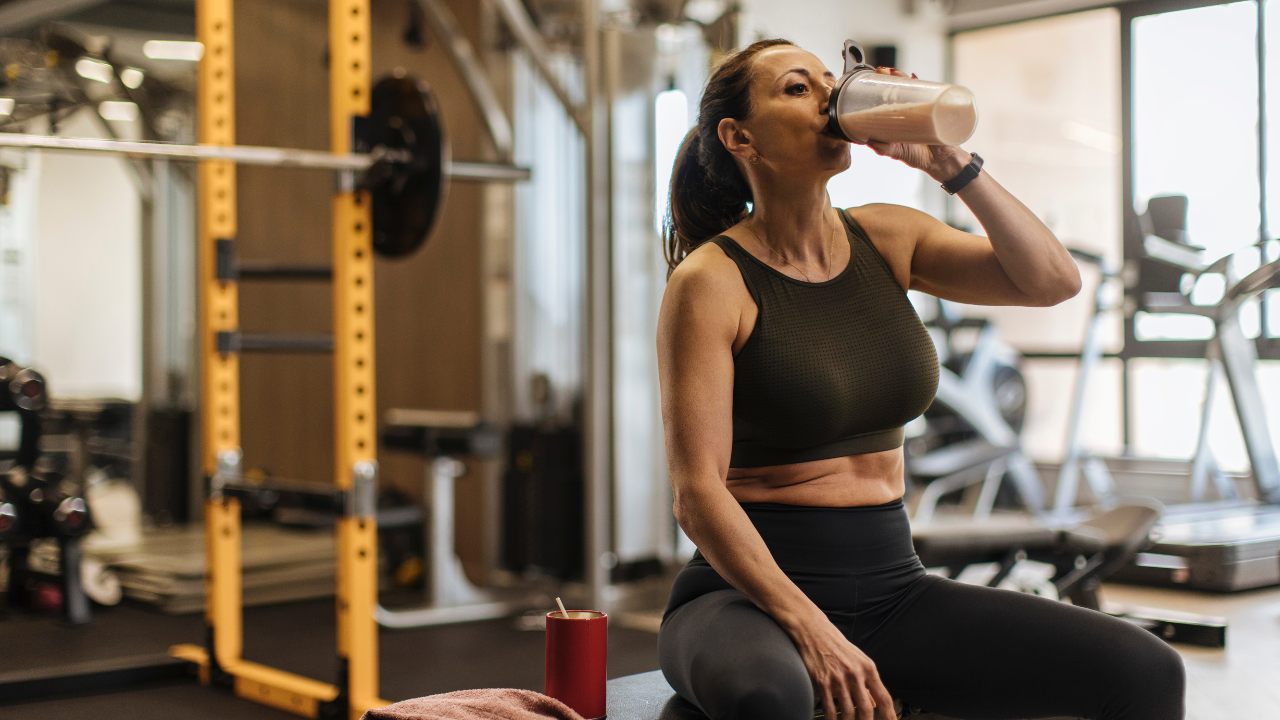Why You Should Throw Away Your Scale
I know this is going to be met with some resistance, but I think you should stop weighing yourself. I know, I know. Hear me out.
For many individuals, the scale is a very addicting tool and something that they rely on. I have worked with so many people that weigh themselves every day and they can tell me their exact weight (to the ounce!) for the past week. Many individuals base their entire view of self worth, their mood, and their food choices on what the number on the scale says.
If you’re new here, hello and welcome! My name is Hannah and I am a non-diet dietitian here to help you improve your relationship with your food and finally find food freedom.
In this blog we will cover:
The problems with weighing yourself
Why your weight doesn’t really matter
How to stop weighing yourself
What to focus on instead of your weight
The problem with weighing yourself
It makes it difficult to listen to your body
So many people allow the number on the scale to dictate their mood and, subsequently, their food choices.
If the number on the scale is at or below the arbitrary number they want it to be at, the mood of the day is happy and they continue to restrict and follow whatever diet they are on. Or they might treat themselves to something that isn’t on the diet because they feel as though they have “earned it” (spoiler: you never have to earn your food).
If the number on the scale is above the arbitrary goal number, the rest of the day is a “bad” and their food choices will go one of two ways. Likely they will either restrict themselves to make the number on the scale go down or they will think “What is the point? Why do I even try?” and proceed to binge eat and feel guilty.
In either situation, we are relying on external information to dictate our food choices rather than listening to our internal food wisdom.
It can lead to poor body image
When you weigh yourself, you likely relate the outcome to your body being “right” or “wrong”. If you are heavier than you’d like, you see your body as a problem. You start to pick apart everything that needs to be changed about your body.
Poor body image is linked to low self-esteem, depression, and the development of disordered eating and eating disorders. Weighing yourself and disliking your body is sucking the life out of you!
It can hold you back from eating disorder recovery
You might be thinking, “what’s the big deal? I’m just checking my weight”. Weighing yourself may seem innocent, but can actually be standing in the way of recovering from disordered eating or an eating disorder.
When you hop on the scale and it does not go as well as you’d like, this can lead to feelings of shame, guilt, and anxiety. These feelings reinforce the idea that there is something “wrong” with you and you aren’t doing enough to care for yourself. You might think “I am not eating healthy enough” or “I am not doing enough exercise”. These thoughts can quickly spiral into rigid “clean eating” and obsessive exercise habits.
Why your weight doesn’t really matter
Your weight is multifactorial
There are so many numbers that contribute to the one number on the scale. It is not just a measure of how “fat” or “skinny” you are. It is definitely not a measure of your health.
Your weight is an accumulation of your muscle mass, bones, and adipose tissue (body fat). Your body is also largely composed of water and the amount of water weight that you have can vary drastically based on your hydration status and the types of foods you eat.
In order to accumulate body fat, you have to consistently eat in a caloric surplus (eat more calories than your body needs for maintenance). When you see the scale fluctuate and go up and down the same few pounds from day to day, this is normal. This is not your body gaining and losing fat mass.
It tells you nothing about body composition
You have probably heard before that muscle occupies less space than fat, and it’s true! If you compare a pound of lean muscle mass to a pound of adipose tissue, the muscle mass is going to take up much less space.
This is why bodybuilders with a large percentage of muscle mass are often considered “overweight” or “obese” based on BMI standards, even though they typically have a very low body fat percentage.
The number on the scale does not tell us if you have the amount of muscle and fat that is healthiest for you.
Weight is not an accurate depiction of overall health
You cannot tell if an individual is healthy or not based off of one data point that a machine reads off when you step on it. The scale does not paint the full picture.
In our society, we have been taught that if someone is in a smaller body, they are healthy, and if a person is in a larger body, they are unhealthy. This is simply untrue. There are so many factors that play a role on our health (not to mention that the definition of “healthy” is different for everyone) that we can’t simply determine if you are healthy based on one number or what your body looks like.
Someone in a larger body may eat a balanced diet, exercise regularly, have great lab values and someone in a smaller body may be the exact opposite. Health does not have a shape or size.
How to stop weighing yourself
Throw away your scale
Get rid of the tool that is enabling this body checking behavior.
Start small. If you weigh yourself daily, try cutting back to only weighing once per week and then once per month and then when you feel ready, throw the scale away (or smash it with a hammer, which would feel pretty great and be way more fun). This will give you so much more mental capacity to focus on other things that will actually benefit your health.
If you are working with an eating disorder treatment team, your therapist and registered dietitian can help you to develop strategies and identify tools to help you stop body checking in a manner that will not be overwhelming. For example, it may feel too scary to get rid of your scale cold turkey. Plus, this might lead to even more restrictive eating habits to “ensure” that you aren’t gaining weight.
Detox your social media
Unfollow anyone that you have followed as “body goals” and anyone that posts “before and after” photos. Here are some more criteria for your social media detox:
Accounts that make you feel bad about your life or your body
Accounts that try to motivate you to change something about the way that you look (this definitely includes weight loss)
Accounts that promote restricting the foods that you eat
Accounts that compare or scrutinize bodies (ex: side by side comparison posts)
Accounts that promote exercise as a means to change the way your body looks rather than focusing on how it feels or other health benefits
Accounts that fail to represent individuals of different shapes, ages, and ethnicities
Shift to body neutrality
Body neutrality involves caring for and respecting your body, regardless of what it looks like. This means that even on bad body image days, you still nourish your body, engage in joyful movement or take rest, and speak kindly to yourself.
Instead of focusing on what your body looks like, remind yourself what it can do. Your body is capable of so much - your legs allow you to walk your dog and go on bike rides. Your arms help you to hold your kiddos and carry your groceries, even if you think that they are “too big”.
The fact of the matter is that you are more than your body. And the way that your body looks is the least interesting thing about you. It is possible to spend less time worrying about what your body looks like, even if you have spend your entire life up to this point being told that your body is not enough.
What to focus on instead of your weight
If not weight, then what? The short answer: health-promoting behaviors.
People in both larger bodies and smaller bodies can improve their health if they are focusing on behavior changes. Your weight is not a behavior! You can’t “do” weight loss (or gain).
Examples of health-promoting behaviors include: eating more fruits and vegetables, reducing stress, sleeping better, moving your body in ways you enjoy, drinking more water, etc.
These behaviors are going to be beneficial for everybody, no matter what the number on the scale says.
Individuals that are constantly dieting and focusing on their weight will likely feel more stressed and not sleep as well. Plus, being obsessed with the number on the scale will make it difficult to focus on other changes, such as eating balanced meals and exercising.
Bottom line
It can feel scary to get rid of the scale because you feel like you are losing control. But the truth is, this is a false sense of control and you don’t have all that much control over what your weight is.
Throwing away the scale will allow you to build trust with your body and eat foods that make you feel good without worrying about the effect they will have on your weight. You are going to feel more confident in your choices because you will be relying on internal food wisdom rather than external information. Progress can be determined in so many ways and the number on the scale does not have to be one of them.
Would you like even more support and guidance on your diet ditching journey? We’d love to help inside The Nutrition Reboot Membership.

































